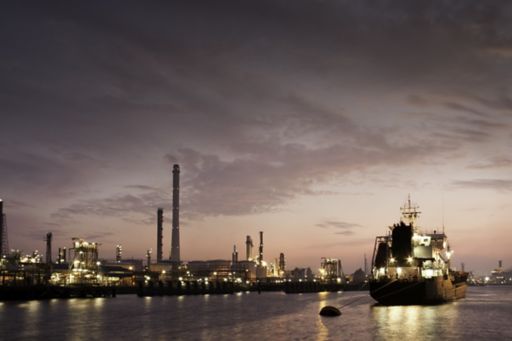The largest Danish companies do not acknowledge climate change as a financial risk
KPMG Survey of Corporate Responsibility Reporting 2017
Only 8 of the 94 largest Danish companies acknowledge climate change as a financial risk to be included in the annual accounts, according to KPMG's report Survey of Corporate Responsibility Reporting 2017. If companies do not acknowledge the financial risks of climate change, they risk losing investors and the opportunity to cope with the negative consequences they cause.

When harbour facilities are increasingly exposed to flooding, drought and famine cause millions of people to migrate and hurricanes cause damage for millions, the effects of climate change can also be felt on the bottom line of the companies operating in the affected areas.
Therefore, it is increasingly an issue that both Danish and international companies do not inform investors of the increasing financial risk that climate change poses to their business.
When companies do not disclose climate-related risks and the potential impacts of climate change on their core products and services, investors are at risk of not getting the full overview of how risky their investments really are. As a result, pressure is growing on companies to include climate-related financial risks in their annual reports.
Climate change poses a financial risk to companies around the world, but according to the newly published KPMG report Survey of Corporate Responsibility Reporting 2017, very few companies acknowledge climate-related risks in their financial statements. The report includes 4,900 of the largest companies worldwide, and the main findings suggest that 75% of these companies do not report on climate-related risks. In Denmark, more than 90% of the 94 largest companies do not report on climate-related risks.
Companies need to be challenged
KPMG's report shows that companies need to be challenged even more if you want more of them to take the financial risks of climate change seriously. The findings of the report underline the need for the Task Force which was established by the international Financial Stability Board (FSB). Already in 2015, the FSB announced that climate change could destabilise the world economy and earlier this year, the Task Force came up with recommendations on how companies should disclose climate-related risks in their financial statements.
If companies do more to factor climate change into their financial statements, it will also provide a better basis for determining what could be done to counteract the negative consequences of climate change. KPMG recommends that Danish companies get started right away to reduce the risk of losing investors and seeing their capital and insurance costs increase.
Danish companies rank high in terms of human rights and UN's Sustainable Development Goals
KPMG's report looks at a wide range of Corporate Social Responsibility (CSR) issues in 4,900 of the largest companies worldwide. Although the largest Danish companies are doing poorly when it comes to acknowledging the financial risks of climate change, they generally rank high on a number of other parameters.
Almost 95 percent now report on CSR in their annual report, partly due to a change in the Danish Financial Statements Act, which came into force last year. 80 percent acknowledge human rights as a business issue, and more than 40 percent link UN's new sustainable development goals to their business activities, in their annual report.
Contact:
Niels Vendelbo
+45 25543658
nielsvendelbo@kpmg.com